Archaeology
-
 Humans
HumansAn ancient outbreak of bubonic plague may have been exaggerated
Archaeological evidence suggests that an epidemic that occurred several centuries before the Black Death didn’t radically change European history.
By Bruce Bower -
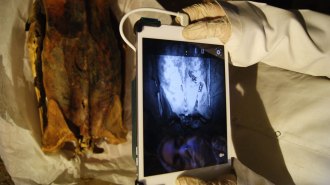 Archaeology
ArchaeologyInfrared images reveal hidden tattoos on Egyptian mummies
Infrared images show a range of markings on seven female mummies, raising questions about ancient Egyptian tattoo traditions.
By Bruce Bower -
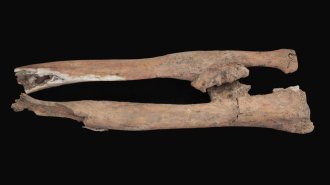 Humans
HumansArchaeologists tie ancient bones to a revolt chronicled on the Rosetta Stone
The skeleton of an ancient soldier found in the Nile Delta provides a rare glimpse into an uprising around 2,200 years ago.
By Bruce Bower -
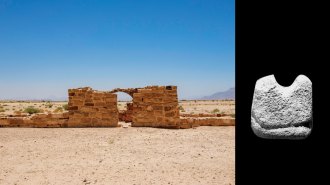 Archaeology
ArchaeologyA carved rock found in Jordan may be the oldest known chess piece
The 1,300-year-old game piece, which resembles a rook, or castle, was found at an Early Islamic trading outpost.
By Bruce Bower -
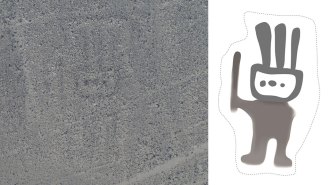 Archaeology
ArchaeologyAn AI found a hidden Nazca Line in Peru showing a humanoid figure
An artificial intelligence program designed to go through massive datasets for hints of ancient geoglyphs called Nazca Lines has discovered a new one.
-
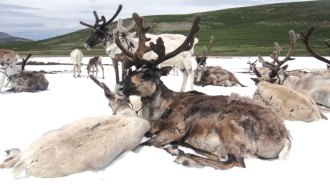 Climate
ClimateThe loss of ‘eternal ice’ threatens Mongolian reindeer herders’ way of life
Mongolian reindeer herders help scientists piece together the loss of the region’s vital “eternal ice” patches.
-
 Archaeology
ArchaeologyA toe bone hints that Neandertals used eagle talons as jewelry
An ancient eagle toe bone elevates the case for the use of symbolic bird-of-prey pendants among Neandertals, researchers say.
By Bruce Bower -
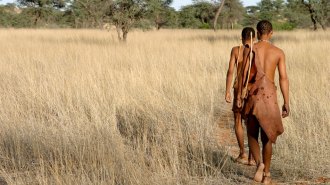 Humans
HumansHumans’ maternal ancestors may have arisen 200,000 years ago in southern Africa
New DNA findings on humankind’s maternal roots don’t offer a complete picture of how and when Homo sapiens emerged.
By Bruce Bower -
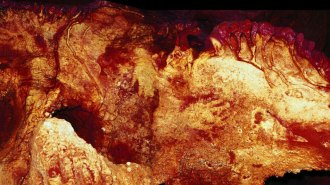 Humans
HumansDating questions challenge whether Neandertals drew Spanish cave art
A method used to date cave paintings in Spain may have overestimated the art’s age by thousands of years, putting its creation after Neandertal times.
By Bruce Bower -
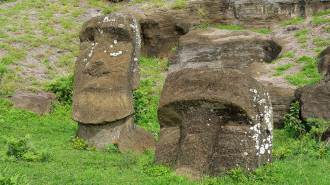 Humans
HumansQuarrying stone for Easter Island statues made soil more fertile for farming
Easter Island’s Polynesian society grew crops in soil made especially fertile by the quarrying of rock for large, humanlike statues, a study suggests.
By Bruce Bower -
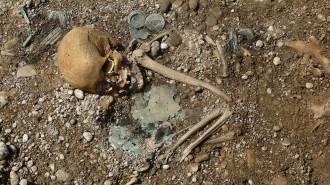 Archaeology
ArchaeologyAncient European households combined the rich and poor
Homes combined “haves” and “have-nots” in a male-run system, suggests a study that challenges traditional views of ancient social stratification.
By Bruce Bower -
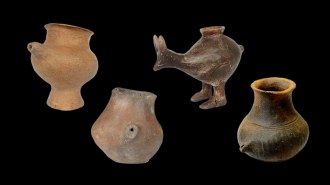 Archaeology
ArchaeologyBaby bottles may go back millennia in Europe
Europe’s early farmers used spouted vessels to wean infants, an analysis of residue from animal milk left in the containers suggests.
By Bruce Bower